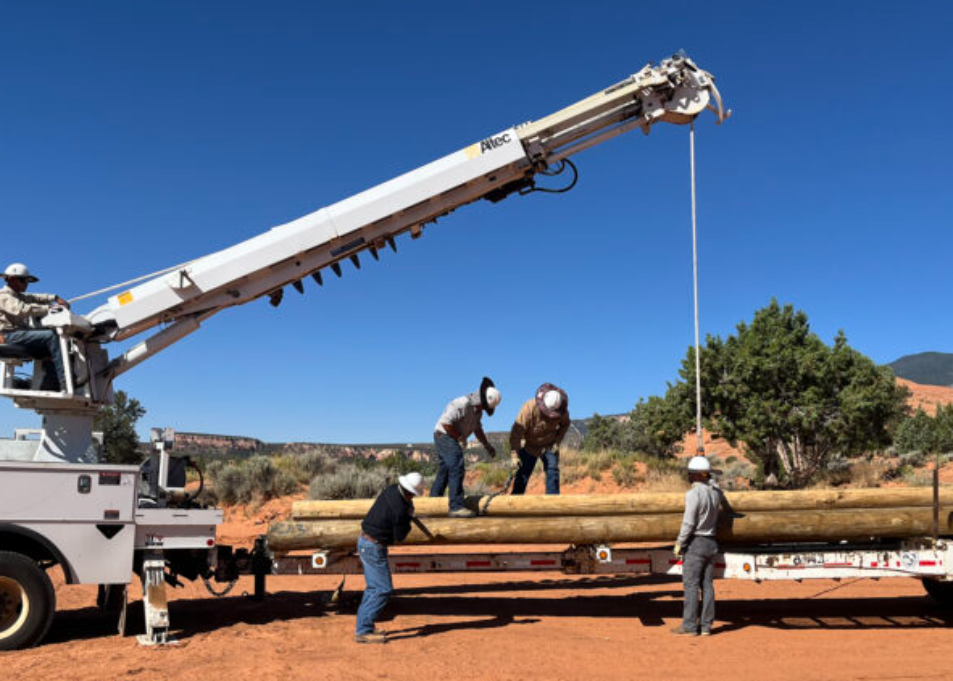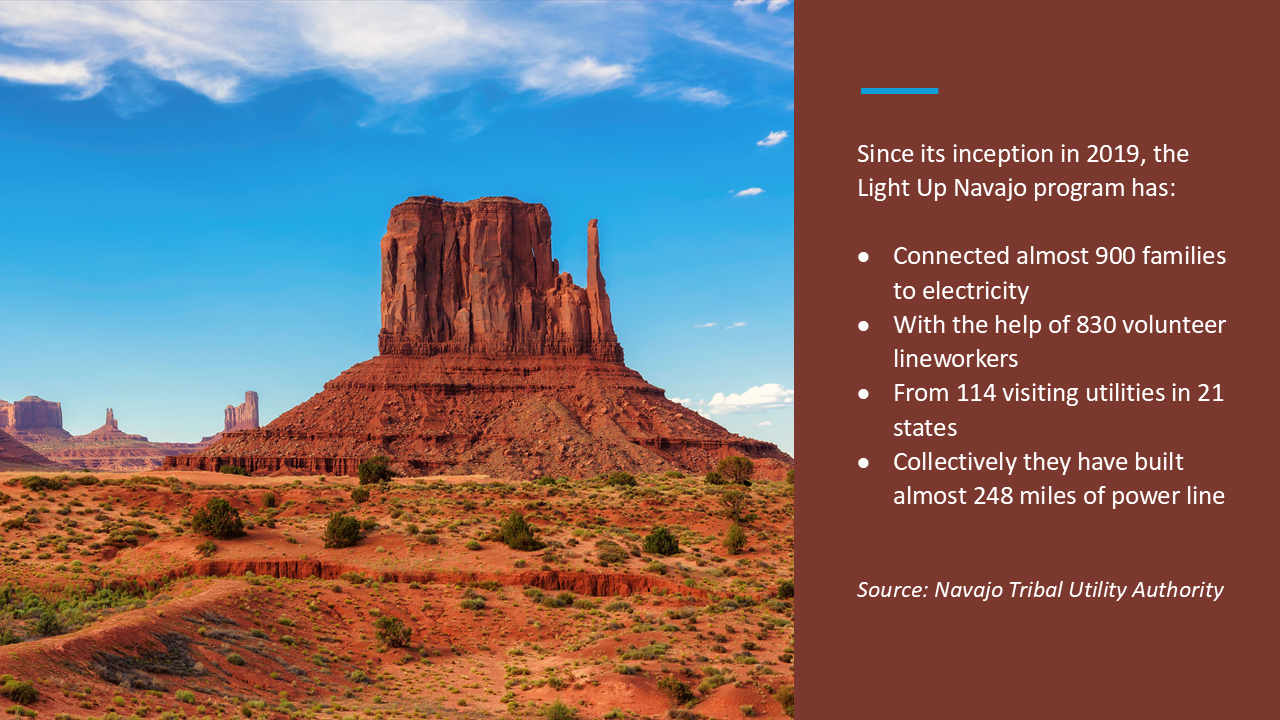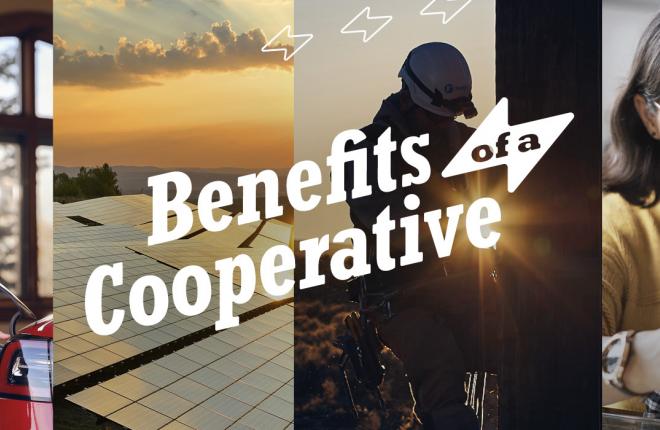
Six Tri-State members among utilities helping bring power to the Navajo Nation
It’s hard to imagine, but there are more than 13,000 of the approximately 56,000 homes - or 23% - on the Navajo Nation in Arizona, New Mexico and Utah that do not have electricity.
The project involves electric utilities from across the country working together under the supervision of NTUA and with NTUA electric crews, in the rugged and expansive terrain of the Navajo Nation, which makes infrastructure development difficult and expensive. It is a challenge well-suited to the expertise and experience of rural electric cooperatives.
During this year’s construction season (April-July 2024), 48 utilities - including 16 electric cooperatives from five states - helped extend power to 170 homes on the Navajo Nation. Six of those electric cooperatives are Tri-State members:
- Columbus Electric Cooperative (Deming, N.M.)
- Gunnison County Electric Association (Gunnison, Colo.)
- Mountain Parks Electric (Granby, Colo.)
- Mountain View Electric Association (Limon, Colo.)
- Poudre Valley Rural Electric Association (Fort Collins, Colo.)
- Sangre de Cristo Electric Association (Buena Vista, Colo.)
“Light Up Navajo began as a mutual aid initiative that has one purpose and that is to electrify homes here on the Navajo Nation for the very first time,” said Deenise Becenti, NTUA government and public affairs manager. “Rural co-ops are now part of the picture, and this has been an incredible blessing because now we have more teams here on the Navajo Nation who are working collectively together for one purpose, and that is to positively and dramatically change the lives of families living without electricity. Families have waited anywhere from a few years to as many as 30 years for electricity.”
The utility serves, on average, about five customers per mile, but the Light Up Navajo homes are among the hardest to reach. Without volunteer help, NTUA estimates that it would take another 30 years to bring power to every home at a cost of about $40,000 each to obtain federal and tribal permits, erect poles and string lines for miles to connect isolated properties scattered throughout the reservation.

Tri-State member Mountain View Electric Association (MVEA) spent two days bringing power to one family. (Source: MVEA)
“What a meaningful experience for the MVEA employees and myself to be a part of,” said MVEA CEO Ruth Marks. “It was incredibly fulfilling to see the impact that providing a life-changing service such as electricity can have on a family. We’ve enjoyed lighting, refrigeration, heating, cooling, and entertainment options our whole lives and MVEA is proud to have played a small role in bringing these opportunities to others. We’ve been able to share this experience with the MVEA team back home in Colorado as an example of why the work we do matters in our community. Light Up Navajo is definitely a great example of the cooperative spirit at work.”

Electricity will allow Sheila Brown and her fiancé to put in an electric pump to bring water up from a well, meaning they will no longer have to drive five miles through the rugged terrain every two to three days to fill up plastic containers with water.
Brown said she is looking forward to cooking on an electric stove, and stocking a refrigerator with fresh meat and produce, instead of eating canned meat or having to make frequent trips to the grocery store 50 miles away. The family has had limited power through a solar panel, but not enough to keep a refrigerator running 24 hours a day.
“Now we can enjoy the luxury of fresh meat and fresh food,” Brown told RE Magazine. “Our lives will be so much better.”
Contributor:
Melanie Culver
Blog Posts

6 Energy-Saving Tips to Get Your Home Ready for Summer

Co-op-Powered Broadband Keeps People Connected When it Counts

Tri-State’s wholesale rates are stable, and forecasted to remain so to 2050

What is the Benefit of Being a Member of an Electric Co-op?

